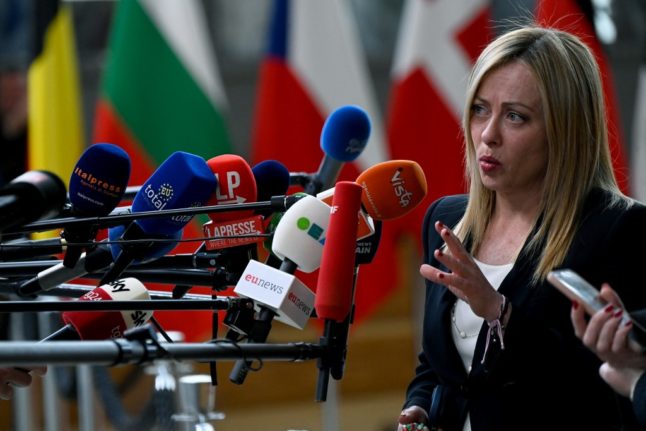As one of the European countries hardest-hit by the Covid pandemic, Italy is due to be the single-largest recipient of EU recovery money.
But the government’s failure to come up with a proposal that satisfies decision-makers has led to the payments being temporarily frozen.
Italy was previously given until the end of April to put together a plan that would persuade EU officials to release the funds, which were originally scheduled to be disbursed in February, according to Reuters.
But in a report published on Wednesday, the EU has expressed renewed concern over delays in Italy’s implementation of reforms under its post-pandemic recovery plan.
Italy, the European Union’s third-largest economy and one of its most indebted, is the main beneficiary under the bloc’s €800 billion ($860 billion) Covid recovery package.
Some €68.9 billion in grants and €122.6 billion in loans have been earmarked for Italy as part of Europe’s largest ever stimulus package, known as NextGenerationEU.
In return, Italy has agreed to a timetable to implement economic reforms, some of which will likely be hard for Prime Minister Georgia Meloni’s populist government to stomach.
READ ALSO: ‘It would be a disaster’: Is Italy at risk of losing EU recovery funds?
On Wednesday, the European Commission, the EU’s executive arm, presented its recommendations to member states and called on Italy to act fast to address any issues.
“The implementation of Italy’s recovery and resilience plan is underway, however with increasing risk of delays,” the commission wrote in a report on Italy.
“Proceeding swiftly with the implementation of the plan… is essential due to the temporary nature of the Recovery and Resilience Facility in place until 2026.”
Brussels has already disbursed €42 billion but, in March this year, the EU froze a third scheduled payment worth €19 billion, pending clarifications on Italy’s plans.
Brussels wants the money to be spent on projects that boost Europe’s transition to a greener and more digital economy, and on infrastructure, especially the rail sector.
But some of the projects on which Italy plans to use the money have raised eyebrows in Brussels, including the renovation of a football stadium in Florence.



 Please whitelist us to continue reading.
Please whitelist us to continue reading.
Member comments